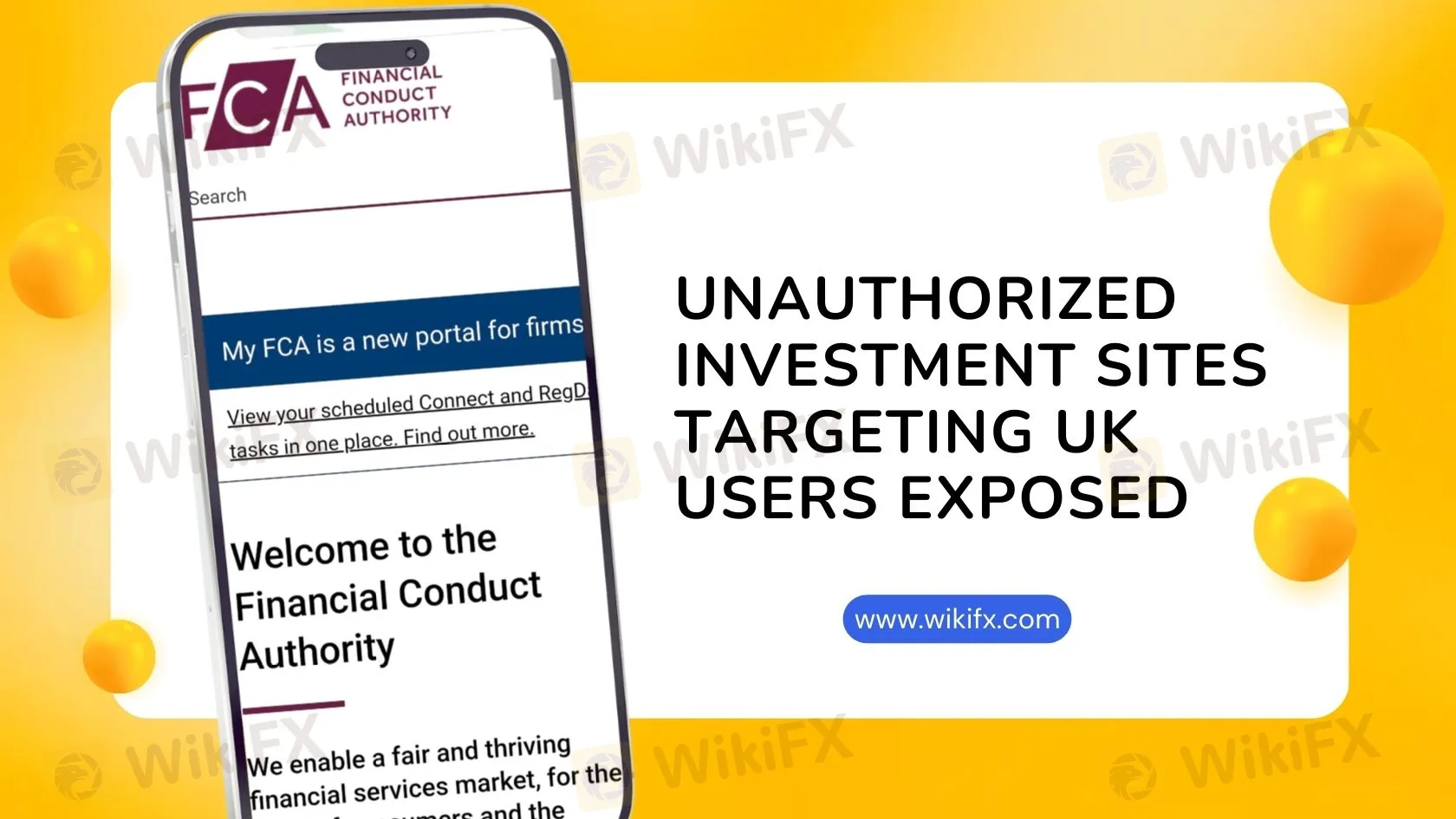Unauthorized Investment Sites Targeting UK Users Exposed
Abstract:Six trading platforms have been flagged for operating in the UK without authorization. Despite polished websites and claimed UK addresses, none are licensed—posing serious risks to investors.

A group of online investment platforms has recently come under scrutiny for operating without authorization in the UK. These firms present themselves as legitimate trading services, often through professional websites and detailed contact pages. However, none of them are registered with the UKs Financial Conduct Authority (FCA) or any recognized regulator, making them high-risk for investors.
Below is a summary of the six exposed platforms, based on currently available details:
Bitmax Limited
Website: www.bitmaxltd.com
Email: support@bitmaxltd.com
Bitmax Limited promotes itself as a trading firm offering investment services across digital assets and forex. Despite its polished website and claims of global reach, the company is not listed in any UK regulatory registry. There is no transparency about its ownership or operational jurisdiction, which raises red flags regarding accountability and investor protection.
PeakTradePro
Website: peaktradepro.pro
Email: support@peaktradepro.pro
Claimed addresses:
- 3931 Memory Lane, Florida, USA
- 5 Preston Court, Burton Latimer, Northamptonshire, UK, NN15 5LR
This platform uses a dual-location strategy, displaying both US and UK addresses in an apparent attempt to build credibility. However, it is not licensed in either jurisdiction. The mismatch between its professional presentation and regulatory status suggests the platform may be misrepresenting its legitimacy to attract unsuspecting users.
OptiTrader AI
Website: optitraderia.pro
OptiTrader AI promotes algorithm-based trading solutions and AI-driven investment strategies. The website appears well-branded, yet provides no verifiable information about the companys legal structure, leadership, or licensing. The lack of regulatory oversight combined with opaque claims of technological sophistication makes this platform particularly risky.
Miradex Trader
Websites:
- miradextrader.pro
- miradextrader.net
Miradex Trader operates on multiple domains, which is often a tactic used by questionable operators to bypass blacklists or redirect traffic. The platform provides minimal company background and no verified registration. Despite offering access to various financial instruments, it is not authorized to provide services to UK investors.
Trade Pro Lexipro
Website: tradeprolexipro.net
Claimed location: United Kingdom (no specific address provided)
Trade Pro Lexipro markets itself as a UK-based trading firm but offers no licensing details or public records to verify its standing. The website lacks transparency regarding corporate ownership and regulatory approval, a common trait among fraudulent platforms.
Novarix Trader 3.9 Flex
Websites:
- novarixtrader39flex.pro
- novarixtrader39flex.com
This entity uses two nearly identical websites to advertise an “advanced trading suite” with vague references to professional support and integrated tools. However, it offers no information about its parent company, team, or compliance status. The duplication of branding across domains without regulatory clarity strongly suggests an effort to avoid detection.
Investor Takeaway: Why Verification Matters
All six of these platforms share a dangerous commonality: they are not authorized to provide financial services in the UK, nor do they offer any form of investor protection. Engaging with such entities leaves users fully exposed in the event of disputes, losses, or withdrawal issues. In most cases, there is no clear path for recovery once funds are transferred.
To protect yourself, always verify a platforms license through reliable sources. The WikiFX database provides broker license checks, regulatory warnings, and user reviews across jurisdictions. In a time when fraudulent platforms often appear professional and convincing, due diligence is your first line of defense.
Even if a platform looks credible, never rely solely on its marketing claims. If it is not licensed, it is not safe.
Read more

SEC Sues Unicoin, Executives for $100M Crypto Fraud Scheme
SEC charges Unicoin and executives with $100M fraud, alleging fake real estate backing and inflated token sale claims. Lawsuit seeks penalties.

CySEC Targets Unlicensed Forex and Crypto Brokers
CySEC blacklists unlicensed brokers like admiralmarket.net in the forex and crypto markets. Strict new rules impose hefty fines. Verify brokers to stay safe.

Is Dupoin a “100% Scam Broker”?
Is Dupoin a “100% Scam Broker”? A trader shared the experience trading with Dupoin. In today’s article, we will offer you a comprehensive review of this broker so that you can have a close overall look at Dupoin.

RM720,800 Lost to an Online Investment Scam Advertised on Facebook
A 58-year-old trader lost RM720,800 after falling victim to an online investment scam promoted through a Facebook advertisement. The scam promised big profits and convinced the man to transfer large sums of money to several bank accounts over a short period.
WikiFX Broker
Latest News
FIBO Group Review 2025: Is This Forex Broker a Scam or Legit?
The RM300 Mistake That Cost Her RM19,050
HDFC BANK: Is This Indian Bank Worth Your Money?
Can these 10 Forex Brokers boost your money in 2025? Saxo, IB, eToro & More
Aurum Markets- Opportunity or Trap? Let's uncover
2025 FXPesa Latest Review
OANDA Japan Deletes Inactive Accounts, Urges Re-registration
M4Markets Review 2025: Is This Forex Broker a Scam or Trustworthy?
WikiFX Broker Assessment Series | IronFX: Is It Trustworthy?
Explore the Unique features of Zerodha, BOI & HDFC Bank
Rate Calc
